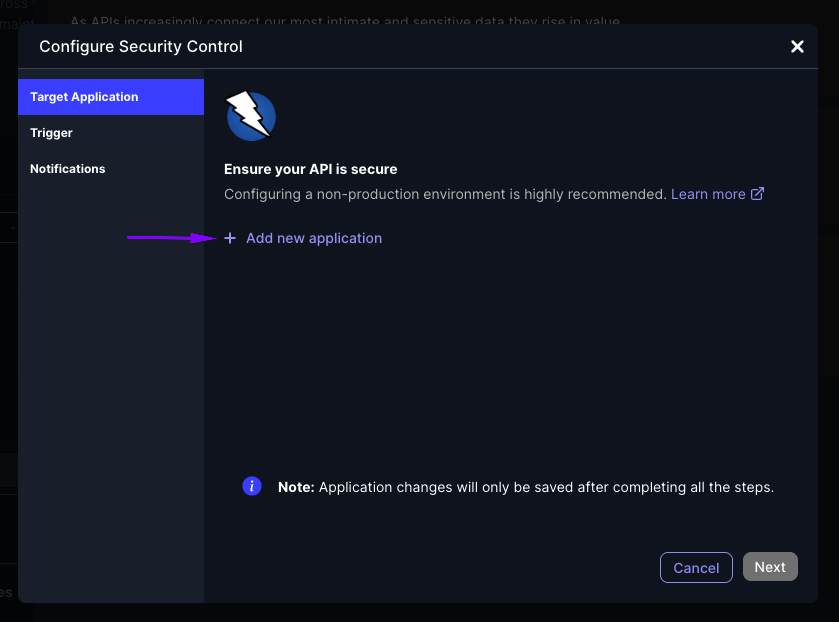Run ZAP-Based Security Controls on a GitHub-Hosted Runner
Overview
This page explains how to run ZAP-based security controls on a GitHub-hosted runner rather than Jit's job execution system. You may want to do this if the access to your WebApp is protected (no public IP / WAF).
ZAP-based security controls include the following:
Using the GitHub-hosted runner
Jit's configuration files, such as
jit-plan.yml,jit-security.yml, andjit-config.yml, are located in the.jitdirectory of the repository you selected for GitHub integration.
Before doing the following steps, open the jit platform and activate the relevant ZAP plan item in the Jit Max Security Plan for Cloud Applications plan.

Once activated, you will be prompted to configure the application to be scanned:
Click on "Add application" and fill up the application details.

Once the application configuration is completed follow the following steps to allow ZAP to run on your self-hosted runner's setup.
Step 1 Add the following code snippet/s to your jit-plan.yml file, depending on whether you want to run Ensure Your APIs are Secure (DAST), Scan Your Web Application for Vulnerabilities (DAST), or both via the GitHub-hosted runner.
override:
workflows:
api-security:
jobs:
api-security-detection:
runner:
setup:
checkout: false
type: ci
override:
workflows:
web-app-scanner:
jobs:
web-security-detection:
runner:
setup:
checkout: false
type: ci
override:
workflows:
api-security:
jobs:
api-security-detection:
runner:
setup:
checkout: false
type: ci
web-app-scanner:
jobs:
web-security-detection:
runner:
setup:
checkout: false
type: ci
Commit the file and in the next ZAP run will be on your self-hosted runners.
That's it!
ZAP-based security controls are now configured to run on the GitHub-hosted runner whenever they are triggered.
Updated 11 months ago
